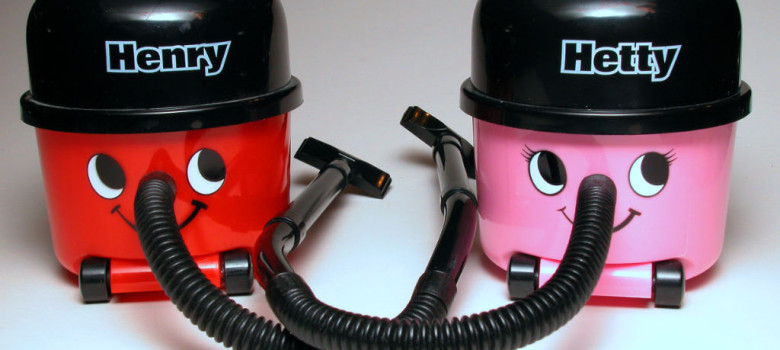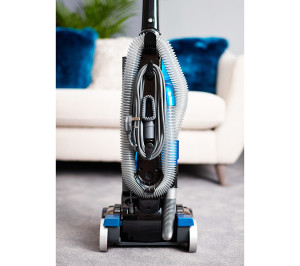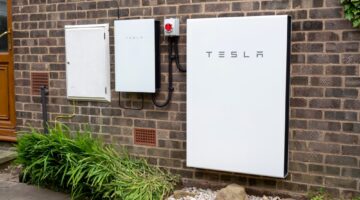
As you may have heard, the EU has recently banned high-powered vacuum cleaners in an attempt to reduce carbon emissions throughout Europe. In Britain this caused many shops to witness a surge of almost 400% in vacuum sales as the good old British public were sent into delirious panic that, with this ‘new law’ (agreed 5 years ago), their carpets would never be clean again.
We have already seen the introduction of many incandescent lighting bans, but to add further misery, a list of 30 more appliances, such as toasters, kettles and hairdryers, are to also fall under this ‘maximum wattage’ category. So are we about to enter an age of warm bread, tepid tea and frizzy hair?
Why the ban? Conservation before Generation.
The overall end aim is to reduce carbon emissions throughout the EU –by 19 terawatt hours by 2020. The current network of renewable techniques and reducing fossil fuelled power stations cannot support the current demand for electricity. This is highlighted by the all too common threat of a blackout as soon as winter is around the corner. So how do you combat this? Well, although you can always generate more electricity (at the cost of the environment or the economy) the cost of generating a kWh is at least 3x as expensive as conserving one.
In theory if you ban all appliances over a given wattage, then the public will use less electricity and manufactures would be forced to plough money into their R&D teams in the search of an appliance that does the same job at 600W as it would at 3,000W. It seems, in the eyes of the EU, that it is the perfect solution. However there are problems that arise, as highlighted by the mad rush to grab every ‘powerful’ vacuum left on the shelves before they are never seen again.
There seems to be a general consensus around the UK that if something doesn’t use much electricity, then it can’t be very bright, powerful or hot – depending on the appliance. (Not too dissimilar from my point of view that if medicine doesn’t taste truly horrific and make you gag, retch and splutter it won’t make you better.) This quite simply isn’t the case, and I use lighting as a case in point. You can replace your 60w incandescent and halogen bulbs with 6w LEDs, which will save you money and provide an increase in light quality as well as lumen output (brightness), so why can’t replacing your high wattage vacuum with a new efficient model actually make your carpets cleaner?
 Can technology bridge the gap?
Can technology bridge the gap?
Fair enough, if this ban had come in 5-10 years ago, then I would be lining up along with the rest of the population to get my hands on the one of the last remaining ‘powerful’ vacuums. However, technology is so advanced now that the efficiency and power per watt factor makes this EU ruling a step in the right direction. Careful thought needs to be given to the individual appliances and the technology behind them. Some appliances require high wattage, and no amount of advancement in technology can help that. The ban is a start, but it must be managed well in order to succeed.
To give you some examples – There are vacuums on the market currently at 1,900 watts, whilst Dyson, widely regarded as a high quality vacuum with great cleaning properties, don’t even have a model running off as much as half that power and therefore are not affected by the new ruling.
Other types of appliance won’t work quite as well as that example – there are 1 or 2 models of energy efficient toasters, but their savings are not great, and at the end of the day you still need a hot electric element to toast with – which as we know from electric heating is always 100% efficient.
So some products will be affected worse than others, but remember that high powered does not necessarily mean high performance! So relax, don’t rush out to buy the last 2,000 watt vacuum on the shelf and if you need to get a new appliance, replace them with modern technology than can not only save the planet but also save you money.
We’d love to hear your thoughts so please leave a comment with your views…
Think we missed something? Do you have a different opinion?
Comment below to get your voice heard…













I always thought that wattage was equivalent to power, (so a 50W bulb would automatically be brighter than a 5W). Seems like this is not the case after reading this and hearing about LED bulbs. Is there anywhere that I can find a list of household appliances that are just as powerful but run off fewer Watts?
Hi Poppy. Indeed and perhaps a bit more needs to be done towards making people aware that wattage no longer correlates to power/brightness. As mentioned above, Dyson are always a good bet, but apart from that look at the energy rating, go against any gut feeling you may have with regards to price and head towards the more expensive appliances from the top brands, as they tend to have had the most investment towards efficiency.
This is the EU going mad. Makes me want to cry ever time if read about this sort of thing.
I understand why people are going mad, Piers, but I have to say that if Dyson (one of the most popular manufacturers) can keep their vacuum cleaners below that level then why can’t everyone else. Less electricity used is less harm on the environment and surely a positive. So what if people need something like this to get the point across?